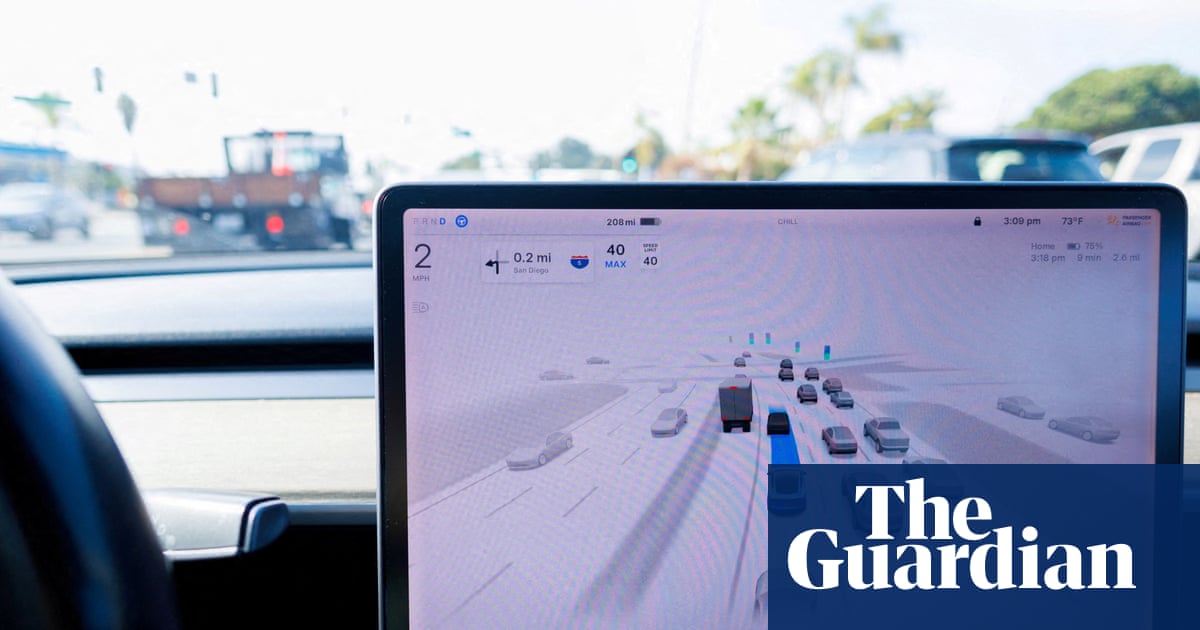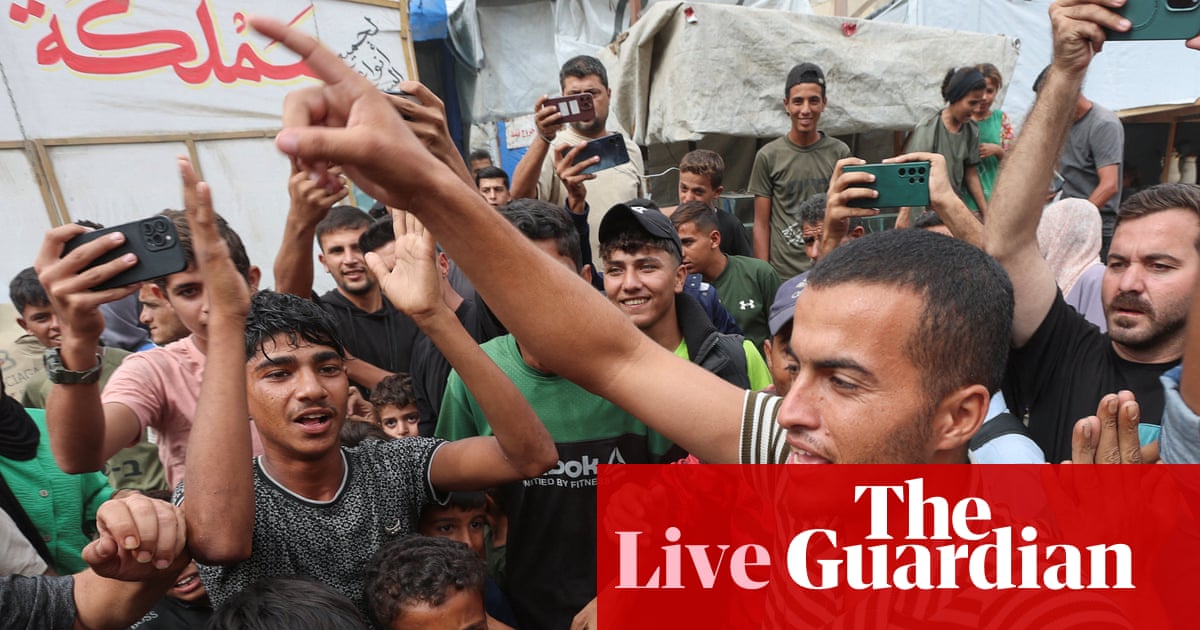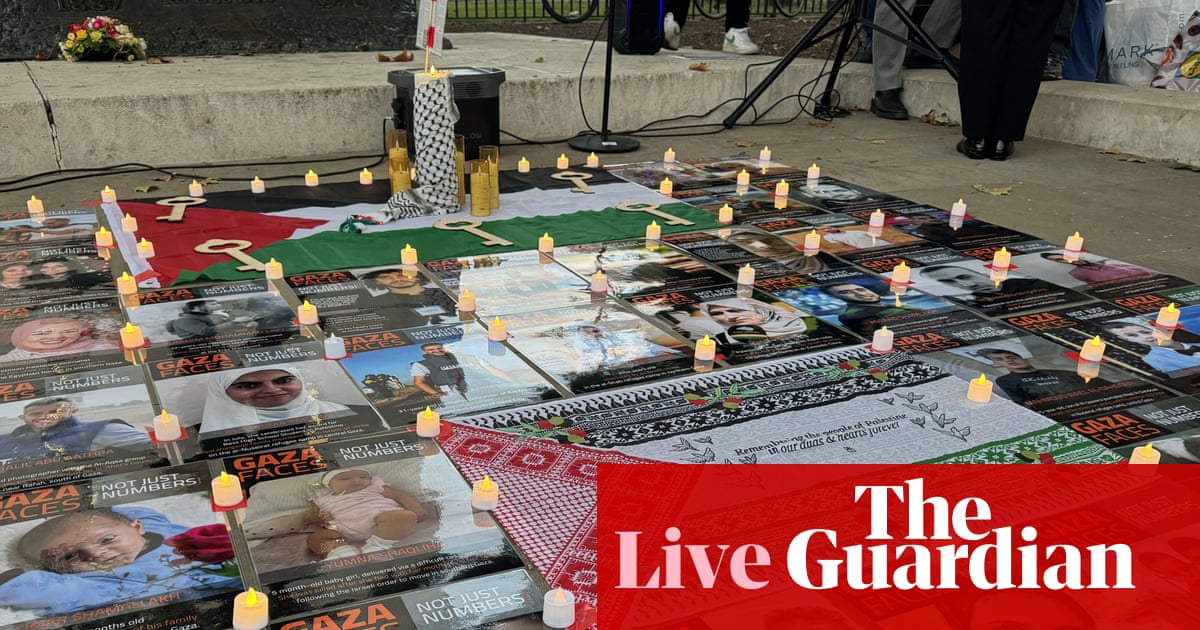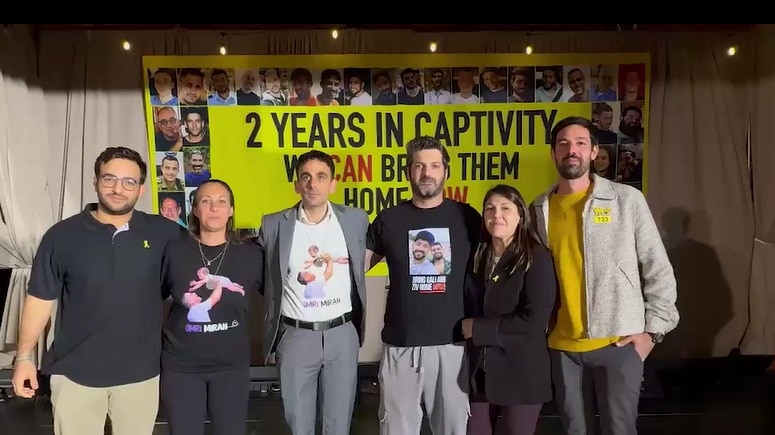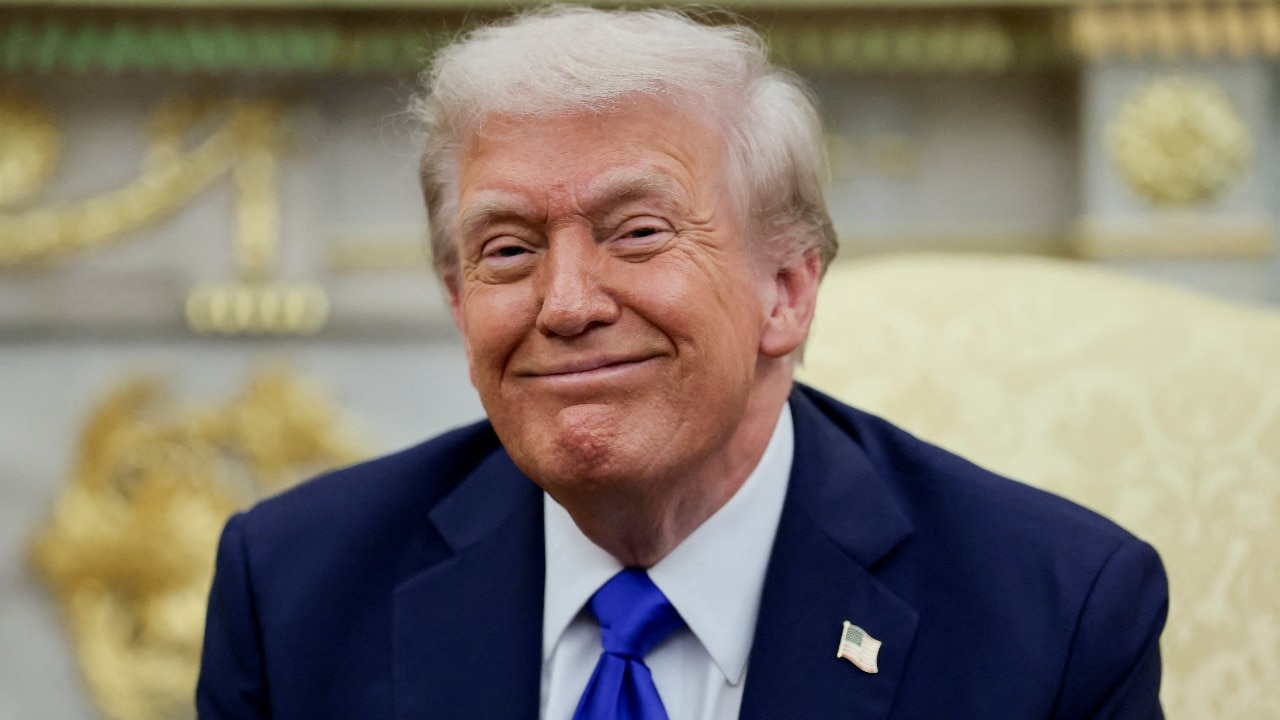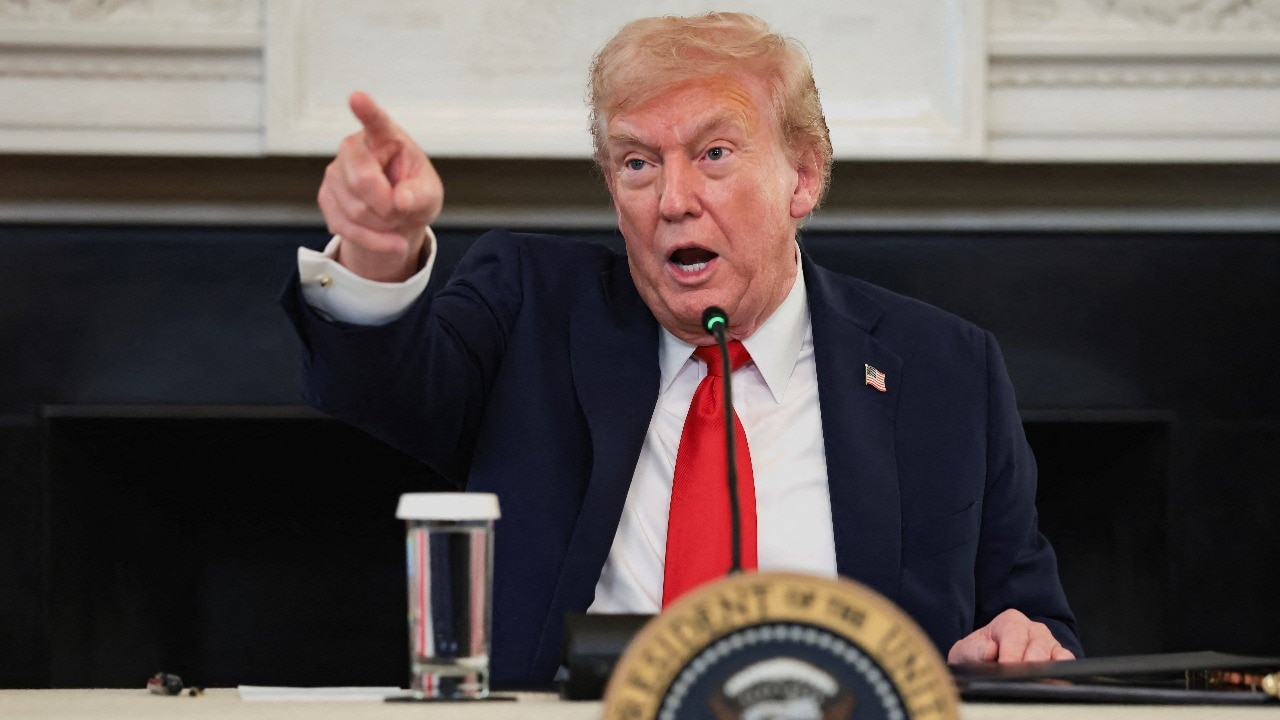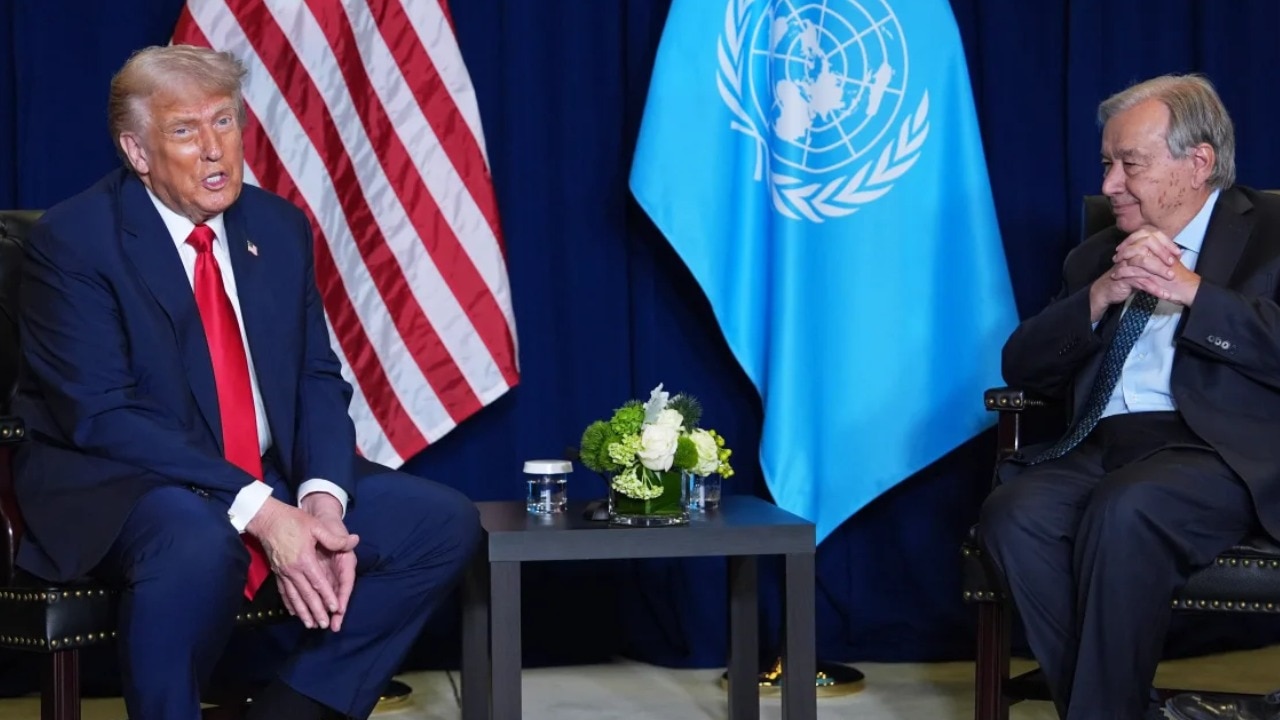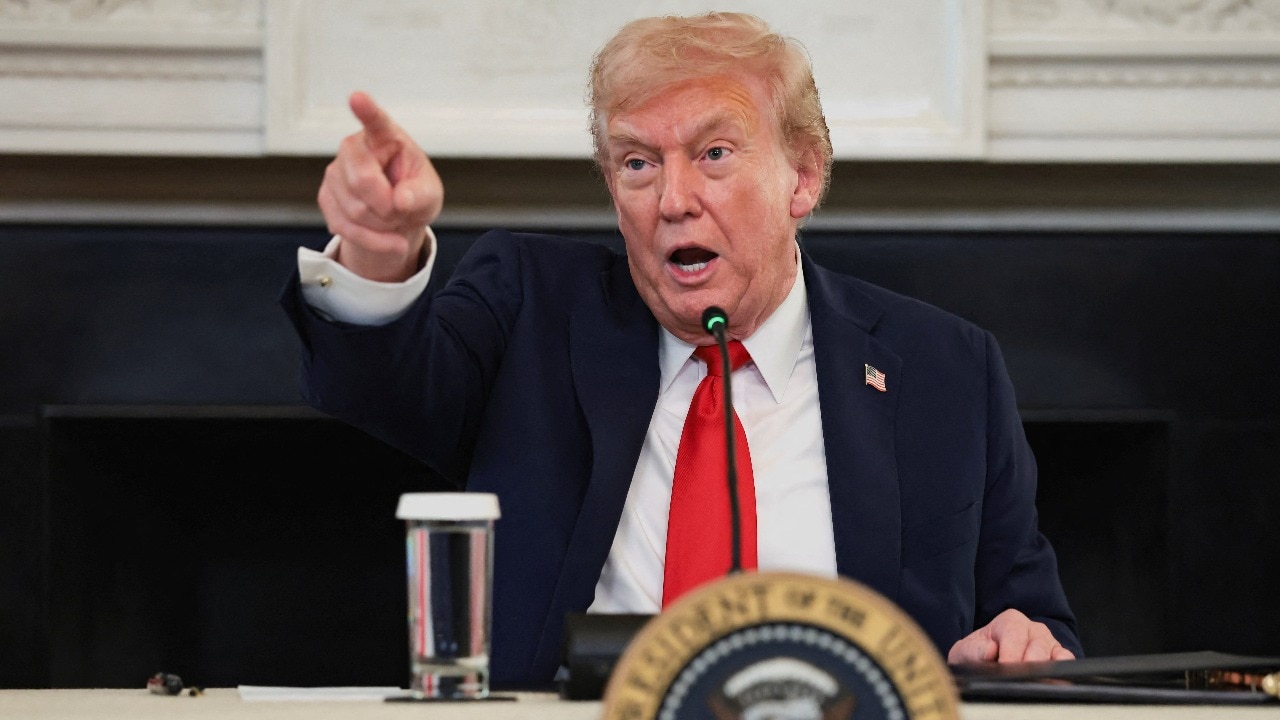President Donald Trump's administration has scaled back a key US government report on human rights worldwide, dramatically softening criticism of some countries that have been strong partners of the Republican president.
Amongst such nations are El Salvador and Israel, which rights groups say have extensive records of abuses.
Instead, the widely anticipated 2024 Human Rights Report of the US State Department sounded an alarm on the erosion of freedom of speech in Europe and ramped up criticism of Brazil and South Africa, with which Washington has clashed on a host of issues.
Any criticism of governments over their treatment of LGBTQI rights, which appeared in Biden administration editions of the report, appears to have been largely omitted.
Washington referred to Russia's invasion of Ukraine mainly as the "Russia-Ukraine war."
The report's section on Israel was much shorter than last year's edition and contained no mention of the severe humanitarian crisis or death toll in Gaza.
More than 61,000 people have been killed in Gaza, the Gaza health ministry says, as a result of Israel's military assault after an attack by Palestinian militant group Hamas in October 2023.
The report was delayed for months as Trump appointees altered an earlier State Department draft dramatically to bring it in line with "America First" values, said government officials who spoke on condition of anonymity.
The report introduced new categories such as "Life" and "Liberty," and "Security of the Person."
"There were no credible reports of significant human rights abuses," the 2024 report said about El Salvador.
That stood in sharp contrast to the 2023 report that talked about "significant human rights issues" and listed them as credible reports of unlawful or arbitrary killings, torture, and harsh and life-threatening prison conditions.
Washington's two-way ties with El Salvador have strengthened since Trump took office, as his administration has deported people to El Salvador with help from President Nayib Bukele.
His country is receiving $6 million from the United States to house the migrants in a high-security mega-prison.
Critics said the report was politically driven.
"The report demonstrates what happens when political agendas take priority over the facts," said Josh Paul, a former State Department official and director of nongovernment organisation A New Policy.
"The outcome is a much-abbreviated product that is more reflective of a Soviet propaganda release than of a democratic system."
State Department spokesperson Tammy Bruce said the report was restructured to improve readability and was no longer an expansive list of "politically biased demands and assertions."
Bruce declined to respond to specific questions about countries and did not say why a list of rights abuses in El Salvador was removed.
DIFFERING ASSESSMENTS
The Trump administration has moved away from the traditional US promotion of democracy and human rights, seeing it as interference in another country's affairs, even as it criticised countries selectively, in line with its broader policy towards a particular country.
One example is Europe, where Trump officials repeatedly weighed in on its politics to denounce what they see as suppression of right-wing leaders, including in countries such as Romania, Germany, and France, and accused European authorities of censoring views such as criticism of immigration.
For decades, the State Department's congressionally mandated Human Rights Report has been used as a blueprint of reference for global rights advocacy.
This year's report was prepared following a major department revamp that included the firing of hundreds of people, many from the agency's Bureau of Democracy, Human Rights, and Labour, which takes the lead in writing the report.
In April, Secretary of State Marco Rubio wrote an opinion piece saying the bureau had become a platform for "left-wing activists," and vowing that the Trump administration would reorient it to focus on "Western values."
In Brazil, where the Trump administration has clashed with the government, the State Department found the human rights situation declined, after the 2023 report found no significant changes.
This year's report took aim at the courts, stating they took action undermining freedom of speech and disproportionately suppressing the speech of supporters of former President Jair Bolsonaro, amongst others.
Bolsonaro is on trial before the Supreme Court on charges that he conspired with allies to violently overturn his 2022 electoral loss to leftist President Luiz Incio Lula da Silva.
Trump has referred to the case as a "witch hunt" and called it grounds for a 50% tariff on Brazilian goods.
In South Africa, whose government the Trump administration has accused of racial discrimination towards Afrikaners, this year's report said the human rights situation significantly worsened.
It said, "South Africa took a substantially worrying step towards land expropriation of Afrikaners and further abuses against racial minorities in the country."
In last year's report, the State Department found no significant changes in the human rights situation in South Africa.
Trump issued an executive order this year calling for the US to resettle Afrikaners.
He described them as victims of "violence against racially disfavoured landowners," accusations that echoed far-right claims but which have been contested by South Africa's government.
South Africa dismissed the report's findings, and said it was flawed, inaccurate and disappointing.
"It is ironic that a report from a nation that has exited the UN Human Rights Council and therefore no longer sees itself accountable in a multilateral peer review system would seek to produce one-sided fact-free reports without any due process or engagement," the government said.
- Ends
Published On:
Aug 13, 2025
Tune In

 1 month ago
1 month ago
